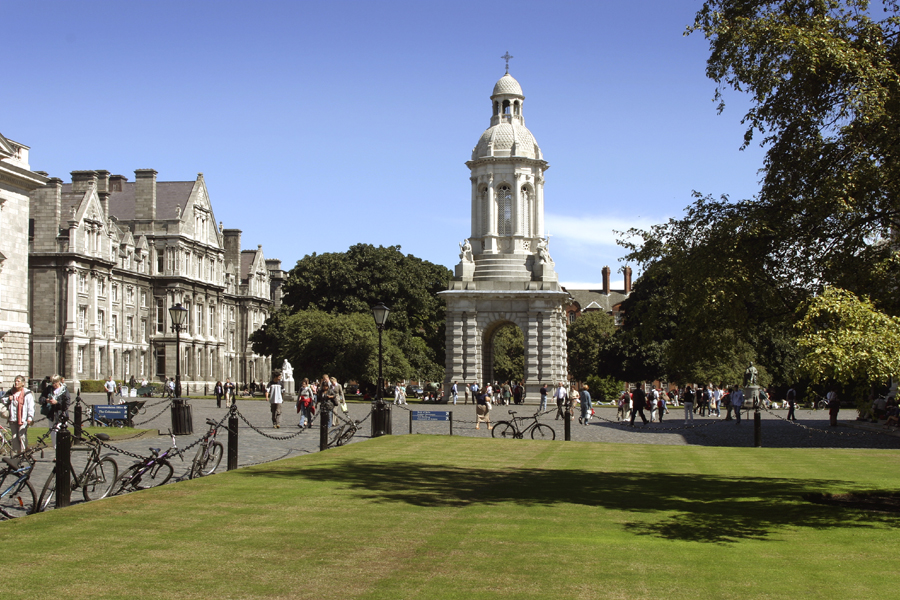Trinity has fallen in a number of rankings recently, but jumped in others. While the Times Higher Education World University rankings put Trinity at 160, compared to 138 the previous year, this university has excelled in specific measures, such as in arts and humanities and life sciences.
I’ve written before about the scepticism with which we must regard these subjective and sometimes arbitrary rankings. However, it’s clear that certain aspects of Trinity’s academic culture require significant overhaul. From the Erasmus programme to the negative experiences of students when looking for support from the College, it’s clear that in order to compete on an international stage, continue to attract students, and maintain any standard of education, Trinity needs to rethink its approach.
The Trinity Education Project is a response to this. In an effort to improve the quality of education received and provide graduates with certain marketable attributes, the College have undertaken a specific project that will work towards improvement in these areas. Such an effort is laudable. Trinity faces challenges from a number of angles – not least a difficult jobs market and the loss of key academics to retirement – but the Education Project intends to counteract and mitigate these.
Graduating from Trinity should not just leave an individual with any old degree, but should provide them with the necessary skills and attributes that an employer wants.
According to the minutes of the September board meeting, the project is intended to develop targeted educational curricula in conjunction with graduate employers, hoping to deliver the attributes that they look for in the hiring pool. As the job market becomes increasingly competitive, this will be essential. Graduating from Trinity should not just leave an individual with any old degree, but should provide them with the necessary skills and attributes that an employer wants. What’s more, the project won’t just affect nefarious aspects such as “graduate impressions”, but may directly alter the semesterisation of exams and the use of technology in education, such as online learning. New courses could be created, following review of entry into the Arts, Humanities, and Social Sciences. Minor course strands might be used to counteract various breakdowns in the provision of courses in this faculty.
What exactly the project comprises remains mysterious to the student body, however. Little information has been made available from College, apart from in the minutes of Council and Board meetings, which are rarely accessed by the average student. The project is still very much in its early stages – not all of the strands are even working yet – and so it’s understandable that it might be less known. And the College administration have already promised that they will ensure adequate student representation and input into the planning groups, acknowledging that consultation with students shouldn’t be ignored.
While student representation in the form of students’ union officers is certainly important, the average student should also have a say.
To get students on board and in support of the project, it’s essential that it actually seems pertinent to our interests and our future progress. While student representation in the form of students’ union officers is certainly important, the average student should also have a say. College has gone some way towards facilitating this, particularly in the survey completed by 2,810 undergraduates in 2013 that aimed to establish what exactly a Trinity Education is, what it means to students, and what it could potentially become. The project has the potential to be transformative in a number of ways, expanding the breadth and depth of a Trinity education to encompass different subjects from an individual’s core degree, or to allow for research in the early undergraduate years. Students from all disciplines have a stake in this. They should be informed that it is happening and what exactly it entails, so that they want to engage directly when their input is called upon.
It’s projected that it will take eighteen months to shepherd the project from development to completion. Eighteen months from now, however, is too late for information about the project to become common knowledge. The Trinity Education Project is potentially transformative, and many students would be interested and engaged if they were given more information. After all, it could affect many aspects of a student’s education in Trinity – from the provision of different degrees, to the use of technology, to the perceptions of employers – and so it should be better publicised, better explained, and opened to the larger body of students so their input can be taken into account from the earliest stages of the plan. Nevertheless, the project itself is an ambitious and important response to the challenges that dog Trinity, and it’ll be certainly interesting to see where it goes from here.







